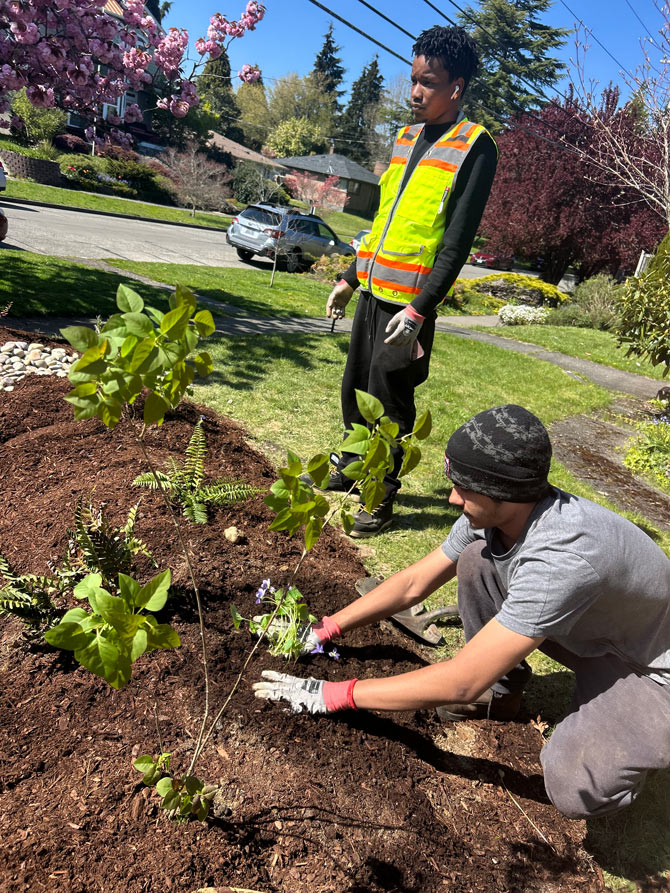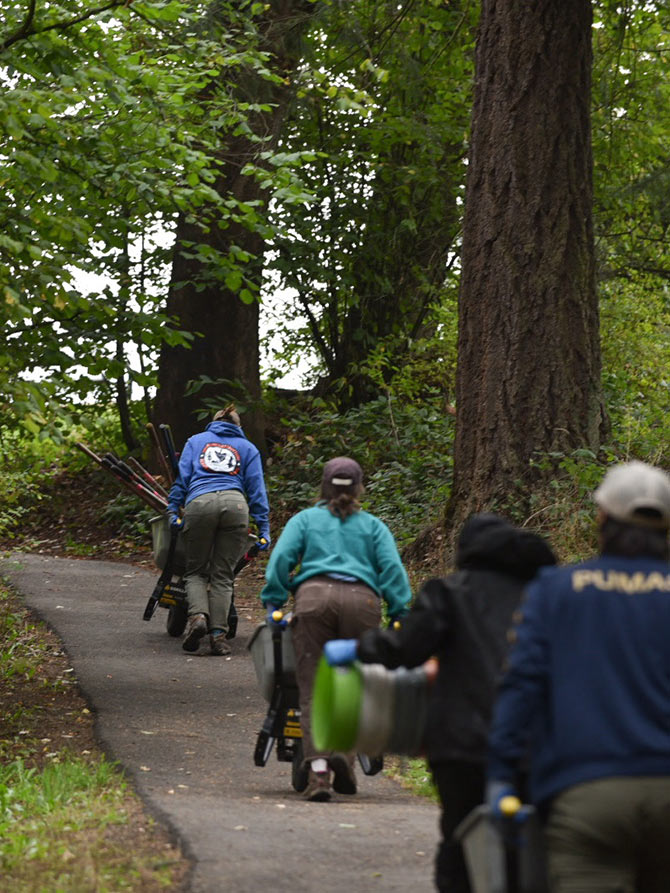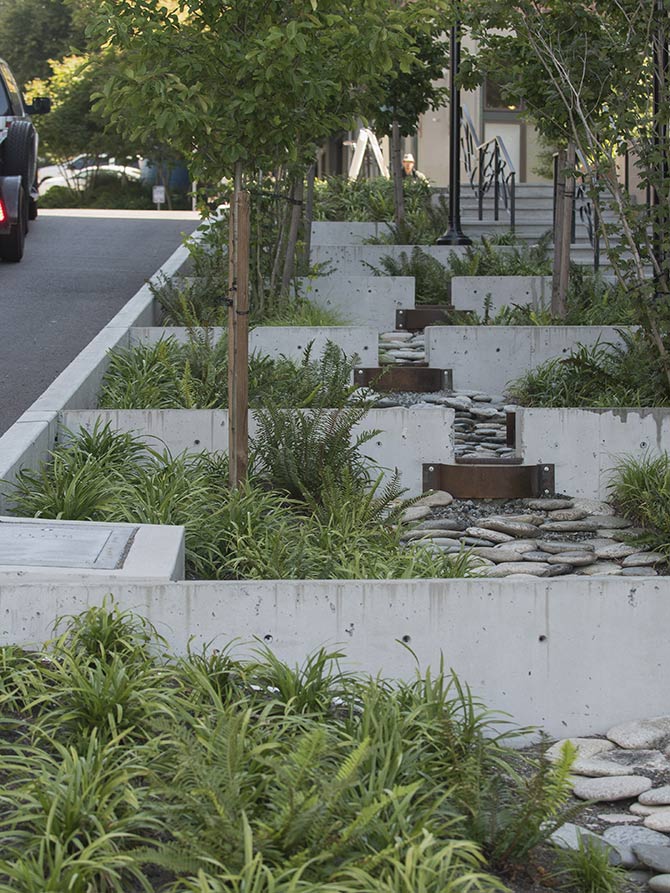An emerging need
As Puget Sound cities increasingly invest in green infrastructure, there is a growing need for trained workers to support project design, construction and ongoing maintenance. Unfortunately, because widespread adoption of green infrastructure is relatively recent and sporadic, project implementers often struggle to find workers trained to do this specialized work. And, it can be hard for workers to find equitable training opportunities and entry points into the field.
A free and adaptable solution
To solve this challenge, the Green Infrastructure Workforce Collaborative drew on the expertise of its members to design the Western Washington Green Infrastructure Curriculum, a free and adaptable training resource that is now being successfully deployed to train workers across the Puget Sound region for this highly specialized work.
The Western Washington Green Infrastructure Curriculum is designed for practitioners and agencies interested in implementing their own green infrastructure workforce training programs. It provides a comprehensive written entry-level curriculum covering a wide range of green infrastructure topics and is adaptable to meet desired learning outcomes and the structure of any particular training program. The curriculum combines classroom learning with hands-on, real-world skill-building in the green stormwater infrastructure and urban forestry fields, providing a solid foundation for workers interested in the sector.
The curriculum at a glance
WEEK 1
Basic Hydrology
Understand watersheds and how they relate to water quantity and quality
WEEK 2
Gray and Green
Infrastructure
Understand conventional stormwater infrastructure and green infrastructure and their relative impacts on water quantity and quality
WEEK 3-5
Green Infrastructure
Maintenance
Best practices for maintaining green infrastructure projects to optimize water quantity and quality
WEEK 6-7
Green Infrastructure
Installation
Best practices for green infrastructure installations, including cisterns and rain gardens
WEEK 8+
Job Readiness
Best practices for job readiness, including punctuality, communication, preparedness, teamwork, and workplace safety; develop job placement application materials and soft skills for entry-level green infrastructure installation and maintenance workforce positions
The curriculum in action
The Western Washington Green Infrastructure Curriculum has been used to develop the following training programs:
Tacoma Green Resilience Opportunity Corps
Pierce Conservation District, the City of Tacoma, Clover Park Technical College, The Nature Conservancy and Palmer Scholars use the curriculum to develop a customized eight-week training program designed to support young adults exploring green infrastructure careers while engaging with place-based projects throughout the Tacoma area. To date, 15 scholars have participated in the program.
Image right: Cohort members building a residential rain garden in Tacoma, WA.
© Janieka Ellington / Palmer Scholars
King County Jobs & Housing Program
Dirt Corps adapted the curriculum to facilitate an eight-week field-based program within the King County Parks Jobs and Housing Program, using the built environment as a learning space rather than the classroom. In addition to providing guidance for the teaching, the curriculum also provided a written resource for participants to articulate the learning outcomes of the program.
Image left: Dirt Corps crew members maintain a public park.
© Hannah Letinich / TNC
Seattle Opportunity Work Corps
This six-month paid training program facilitated by the Seattle Jobs Institute, Machinists Institute, and Seattle Public Utilities incorporates the curriculum across the six months of the program. Through classroom and field based training, the crew gains foundational skills to pursue GSI and related work.
Image right: Green infrastructure project in downtown Seattle.
© Hannah Letinich / TNC
“The GSI Curriculum provides the opportunity to build multiple hands-on, real-world applications for the skills needed in construction and environmental fields.”
Roseann Barnhill, Dirt Corps
Access the curriculum.
If you are interested in adapting the curriculum in your community, please fill out the form below.
For more information
Learn more about the Green Infrastructure Workforce Collaborative here. For more information, contact Hannah Kett at hannah.kett@tnc.org.
The Nature Conservancy in Washington currently acts as the primary convener of the collaborative with facilitator and strategic support from SM Watts Consulting and project support from Urban Systems Design. Gianna Craig led the coordination and development of the Western Washington GSI Curriculum.
Thank you to the following organizations for their participation in the development of this curriculum: Clover Park Technical College, Dirt Corps, EarthCorps, Pacific Education Institute, Pierce Conservation District, King County Wastewater Treatment Division, Washington State Department of Transportation, and Washington State University Stormwater Center.
Join us.
If you are interested in learning more or getting involved in the work of the Collaborative, share your interest and we will follow-up.
© Hannah Letinich



